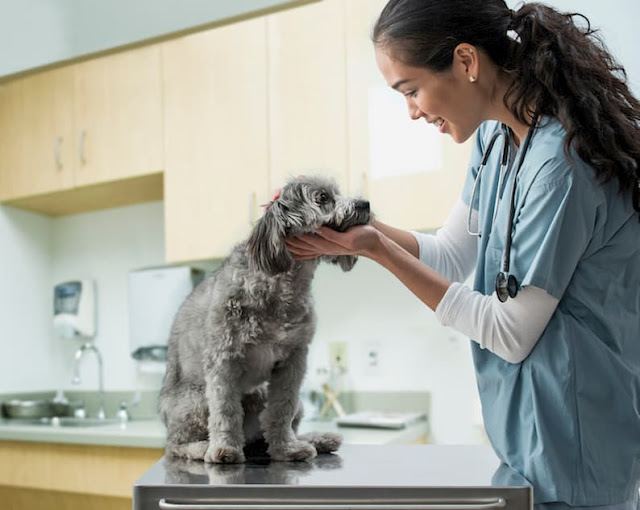Diarrhoea, a prevalent issue in dogs, can have serious consequences if not effectively treated. It is crucial for pet owners to be acquainted with treatment options for mild cases and to recognize the signs when their furry companions are dealing with this condition.
In instances of more severe diarrhoea, seeking advice from a veterinary expert is highly recommended at the earliest opportunity. Additionally, considering a suitable pet insurance policy can be beneficial. By having coverage for veterinary expenses, you can concentrate on your pet's well-being when visiting the veterinarian for an illness, rather than being overly concerned about the entire cost of their care.
What are the causes of diarrhoea in dogs?
When searching for information around diarrhoea in dogs, it can be difficult to determine what your dog’s diarrhoea is a symptom of. With a wide range of serious and more minor health issues, your dog’s symptoms could fall anywhere along the spectrum.
Despite any confusion, here are the main causes of diarrhoea in your dog that you’ll need to know about.
Diet
Dogs, especially puppies, possess delicate and developing digestive systems . When their diet undergoes abrupt changes, it often leads to diarrhoea, intolerances, and allergies. To ensure the well-being of your dog, it is advisable to consult your veterinarian and confirm whether the chosen food is the most suitable option for them.
Furthermore, dogs are naturally curious creatures and may tend to ingest various items they come across on the ground or in their surroundings. This behavior can be risky as they might consume objects that are toxic or harmful to their bodies.
Parasites
Dogs, particularly in their early stages of life, are susceptible to parasites. Puppies can acquire intestinal parasites from their mothers even after birth . Additionally, they can pick up parasites from their environment or contaminated water sources outdoors.
These parasites may include roundworms, hookworms, whipworms, tapeworms, coccidia, and giardia. It is crucial to promptly treat all parasites under the guidance of a veterinarian to prevent any potential long-term health complications.
Viruses and infection
Dogs that are not vaccinated or are under-vaccinated are at a higher risk of contracting bacterial and viral infections. Both types of infections should be promptly addressed as they can lead to unpleasant consequences.
Bacterial infections such as Salmonella, E. coli, Clostridium, and other bacteria can be responsible for causing diarrhoea in dogs
Viral infections like parvovirus, distemper, and coronavirus can also result in dog diarrhoea. Additional symptoms such as vomiting, fever, lethargy, or loss of appetite may also be present. It is important to seek veterinary attention in such cases to ensure proper diagnosis and treatment.
Stress
Stress can directly contribute to your dog experiencing diarrhoea. The ability of your dog to adapt to a new home, routine, and family dynamics can significantly influence their overall well-being. Increased stress levels can also arise from interactions with other pets in the household and exposure to unfamiliar sounds or odors. It is important to recognize and address these stressors to help alleviate any gastrointestinal issues your dog may be experiencing.
Treatment
If your pet is experiencing a lack of appetite, displaying lethargy, vomiting frequently, showing signs of abdominal pain, and is also suffering from diarrhoea, it is advisable to contact your veterinarian
Depending on the duration of the symptoms, which is typically within the first 48 hours, your vet may recommend at-home treatment. However, if the symptoms persist beyond this timeframe, immediate veterinary attention may be necessary, especially for puppies, older dogs, or dogs with pre-existing medical conditions.
Preventive measures
There are several ways to prevent your dog from developing diarrhoea:
- When starting a new diet, transition your dog slowly
- Make sure that your dog has plenty of healthy and balanced food
- Make sure that exercise is provided daily
- Create a stress-free environment for your dog
- Make sure to keep your dog up to date with vaccinations
- Keep the dog’s environment clean with the right disinfectants
- Make sure to establish a regular routine for your dog
- Talk to your vet about parasite prevention
- Partner with your vet to implement a proactive health plan for your dog







